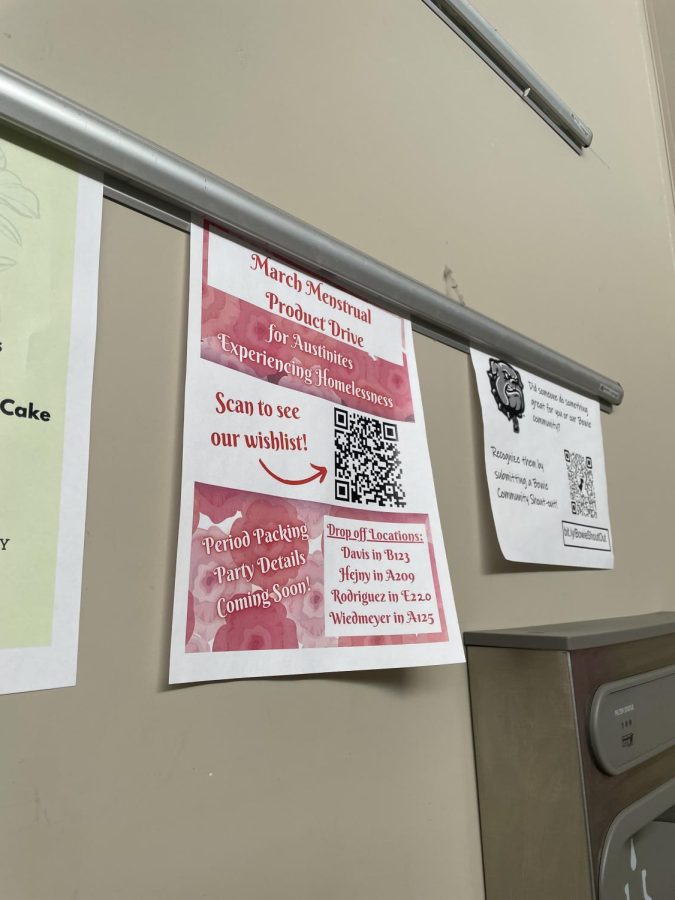March Menstrual Product Drive
According to Duquesne University, women have an average of 456 periods in their life, which translates to 9,120 tampons used.
March 11, 2022
Rushing towards the pharmacist, tampons in hand. Urgently waiting, Jane Doe needs to buy these tampons to send her daughter to school the following morning, but her card declines. “Insufficient funds.” Hopelessly searching for her empty wallet, she doesn’t have enough to feed and help her daughter.
Although this is a false scenario, many women can have similar experiences to Jane Doe; Crissy Hejny, director of the Menstrual product drive, said that over 1,200 women experience homelessness. Scenarios like this are what the Menstrual Product Drive aims to alleviate.
“I want everyone to be comfortable talking about periods and menstruation and not giggling and thinking it’s gross,” English teacher Crissy Hejny said. “It’s something that half of the population has to go through for every single month for most of our lives. it’s just a biological reality for half of us.”
According to Duquesne University, women have an average of 456 periods in their life, which translates to 9,120 tampons used. At an average price of seven dollars for a box of 36 tampons, the total amount women spend on tampons is approximately $1,773.33. This amount is also taxed, which is a common argument to get changed.
“The tampon tax has got to go,” Hejny said. “It’s a bit silly; they should be free in public spaces and available. Here at school, for example, Ms. Shumake was able to coordinate getting products in all of our bathrooms for free because not all of our students have them all the time when they might have an emergency. Some students can’t afford them and don’t have access. I don’t necessarily believe that I should get them for free. I can afford to buy them on my own, and I can afford to buy them for my daughters. I think of people that are homeless.”
Another common argument about menstrual products is the amount of trash they produce. In the US, around 12 billion pads and 7 billion tampons are thrown out every year which take hundreds of years to decompose.
“One thing I can’t help but think of because I’m an environmentalist, and looking at all the trash that menstrual products create is a lot,” Hejny said. “I am a privileged woman with money and access and all of this. I was able to use reusable products that were clean, safe, and healthy, but not everyone could. but they make the menstrual cup the most recent thing on the market which generates zero trash but is more expensive.”
All products donated will be packaged in a packing party at the end of March. During this party, student volunteers will spend time packaging and donating the products to local nonprofits that are black women-owned.
“I haven’t decided if I will participate, but I think it’s a good idea,” junior Kira Harper said. “I think it’s important that the products are getting donated to nonprofit businesses because the whole issue is how expensive they are and the amount businesses are profiting from these products is too high.”










Proud Abue • Mar 11, 2022 at 11:47 pm
This is such a great high school. What a good outreach!